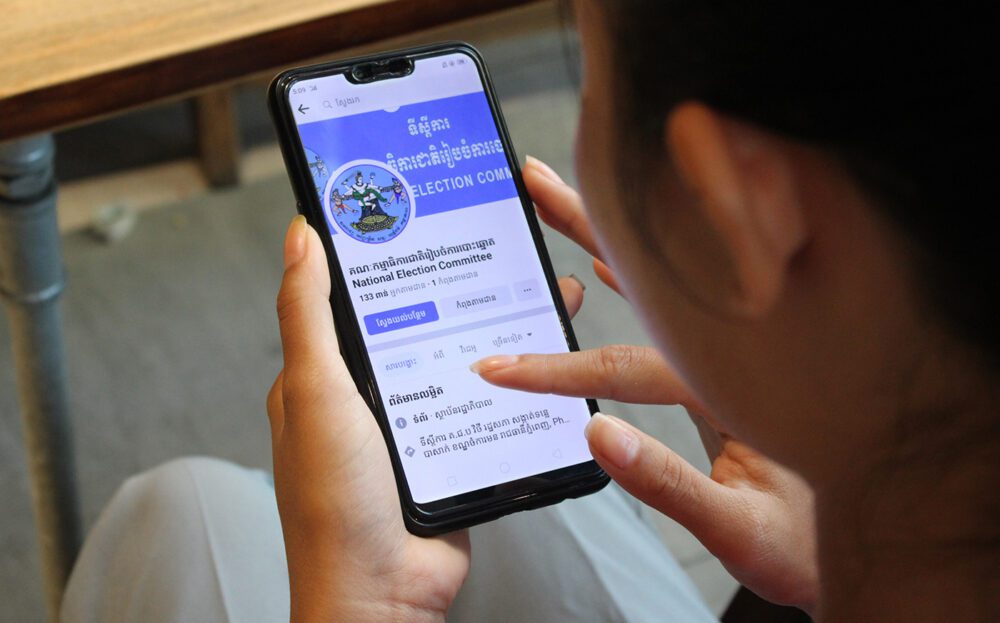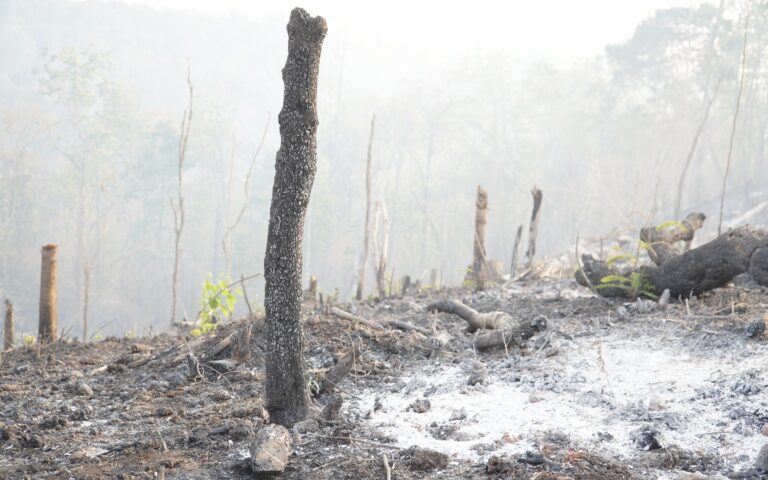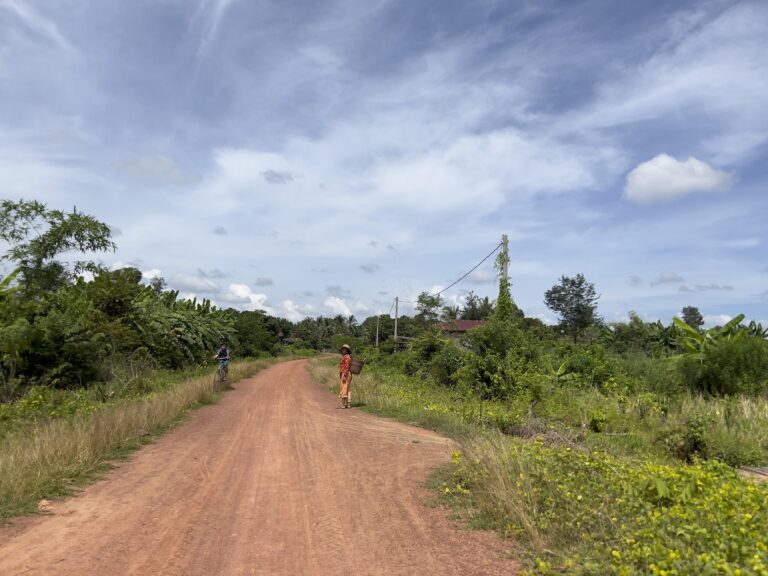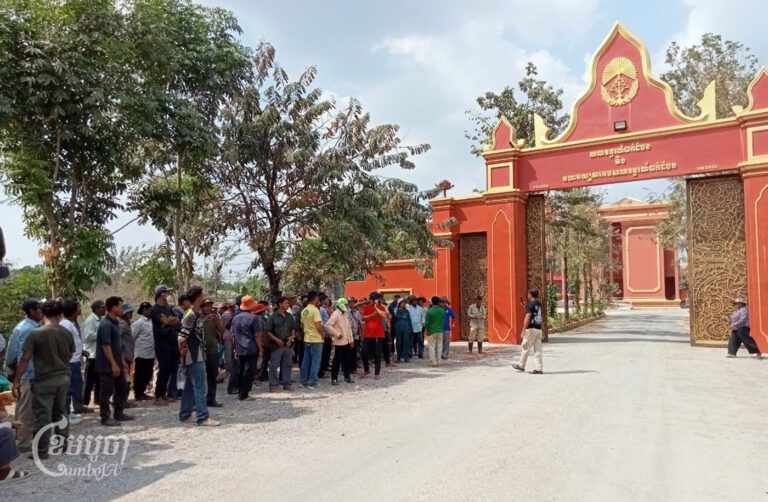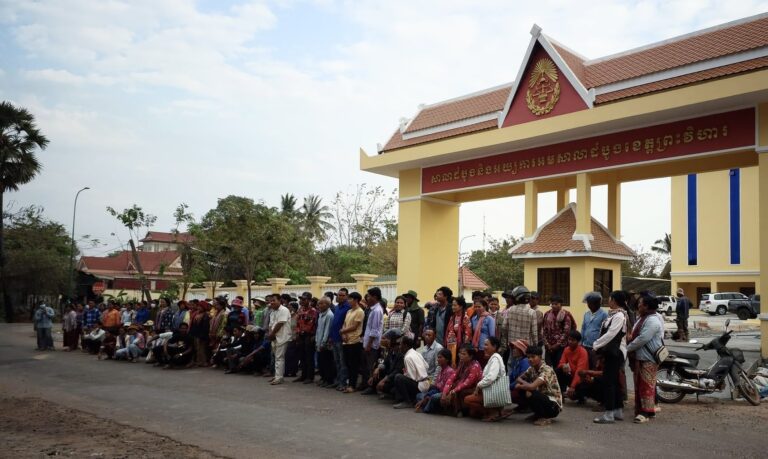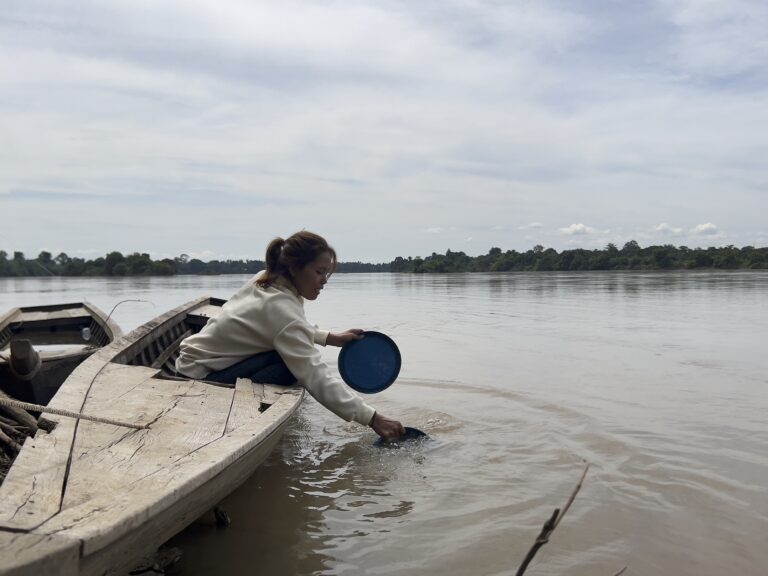Lek Karry has been using a smartphone for nearly two years but the grade 12 student admits she still struggles to distinguish between real and fake information online.
An indigenous Brao from Ke Kuong village in northeastern Ratanakiri province, Karry initially got a smartphone to study online during the height of the Covid-19 pandemic. She uses some social media and messaging apps like Facebook and Telegram but says she remains unfamiliar with other well-known apps like Twitter.
Though aware of widespread misinformation on social media, Karry says she finds it difficult to fact-check the news online.
“When there is election news on social media, I check first if other Facebook pages released the same news, or I check the National Election Cambodia’s Facebook page, and then I compare the news item to find the true news on social media,” she said.
Other indigenous youth echo Karry’s concerns. Sev Vannly, a 26-year-old indigenous Jarai, has been using smartphones to access news on social media for nearly a decade but also struggles to assess what information is accurate.
“Sometimes it is true, sometimes it is not,” he said. “Before I used a smartphone, I did not know Facebook and I didn’t know anything. Not many people in my community know about social media, I think maybe only 10% of my community uses smartphones.”
Karry and Vannly are just two of many ethnic minority indigenous people in Cambodia who are vulnerable to online misinformation, even as Cambodia’s July national elections approach.
A report by data aggregator Datareportal shows that Cambodia has more than 22 million mobile phone users and more than 12 million social media users as of January 2022, primarily on Facebook and TikTok. Nearly 18 million people are registered as internet users as of September 2022, according to the Kingdom’s telecommunication regulator.
But despite improved connectivity, only 30% of Cambodians have basic knowledge of media and digital literacy, says Vy Nop, Executive Director of CamboJA, citing data from the Ministry of Post and Telecommunications.
The situation is especially difficult for indigenous peoples. The Open Development Cambodia (ODC) estimates indigenous peoples comprise around 200,000 or 1.2% of Cambodia’s population spread across 24 groups speaking 19 languages, mostly located in northeastern Ratanakiri, Mondulkiri and Kratie provinces.
“Internet access is very difficult for indigenous people living in remote areas,” Vy said. “The internet speed is also unfavorable for them to use the digital device. That problem is an obstacle for the indigenous people to receive digital literacy education or lose their opportunities.”
Digital rights experts say there are three main factors putting indigenous peoples susceptible to online misinformation: a lack of social media and digital skills, lack of reliable and accessible sources of information, and ongoing marginalization due to their ethnic identities, such as lack of Khmer language literacy.
As Cambodia approaches July national elections, civil society organizations warn of the potential for mounting misinformation and urge improving digital literacy in indigenous communities through training programs and awareness-raising activities.
Facing the looming 2023 elections
Lida Hok, a CCIM coordinator for media literacy, said that there are several training programs like Media 101 Club and Media Literacy Training, funded by the International Foundation for Electoral Systems (IFES), which include outreach to indigenous people in Mondulkiri and Ratanakiri provinces.
During a digital security training program in Phnom Penh in January, Lida said that indigenous peoples lack access to digital devices like smartphones and computers and face limited internet access as many live in remote communities. A June 2022 study by digital rights NGO Engage Media found indigenous Cambodian youth surveyed reported limited information and communications technology skills.
“They live far,” Hok said. “They may have digital devices, but they don’t have an internet connection. If we compare indigenous peoples’ ICT skills with the youth living in urban areas, the level of their knowledge is relatively poor, and their understanding is also different.”
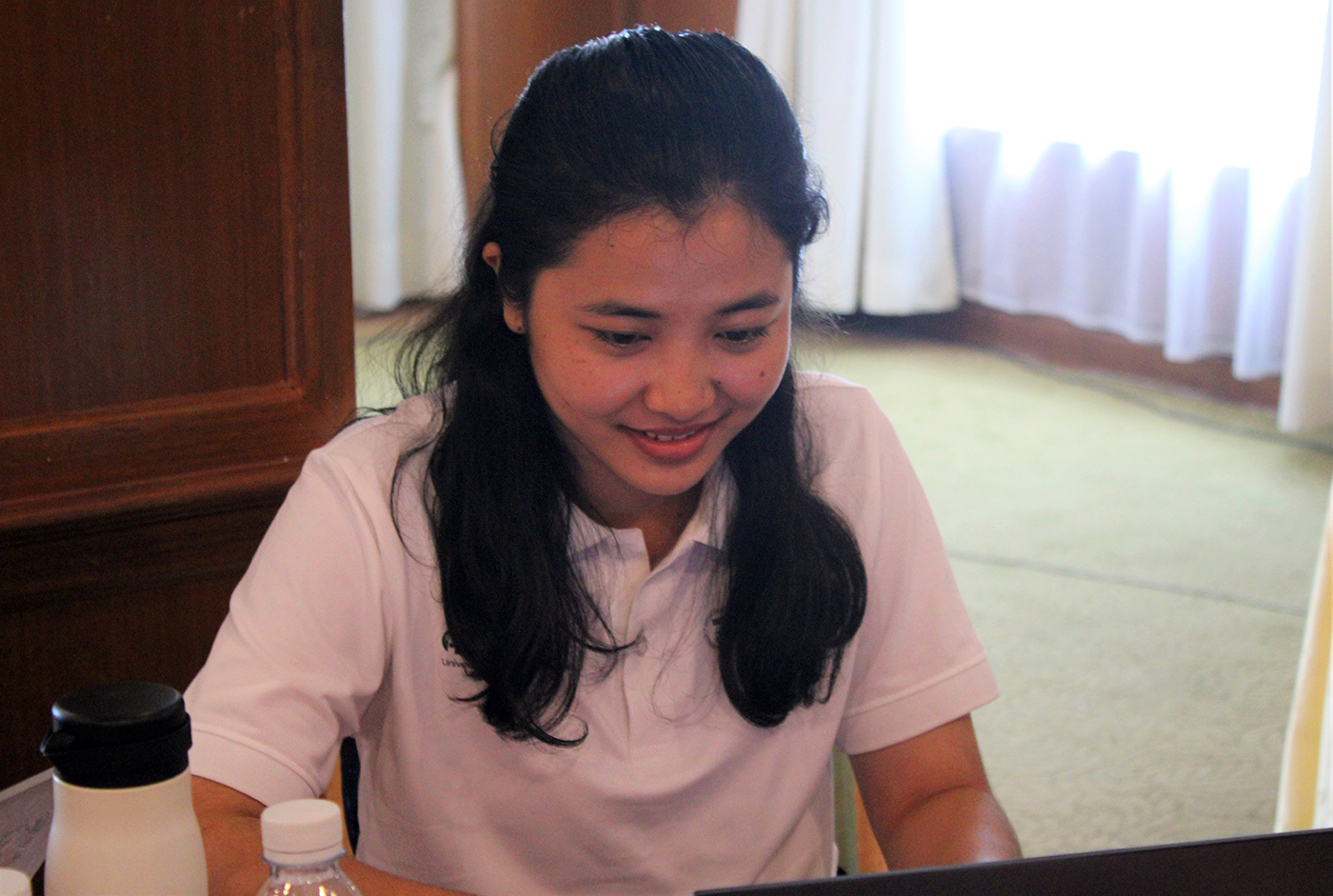
Lida said training can help indigenous peoples protect themselves from false sources and misinformation, especially in the run-up to the election.
“They can distinguish between true and ‘false’ news,” she said. “So, they can spot the type of news that they are thinking of if it is misinformation, disinformation, or ‘fake’ news. They can verify and make decisions by themselves.”
Moses Ngeth, a digital security consultant, says fraudulent information occurs in almost every country, especially during election season, but misinformation’s impact depends on the level of awareness of people in each country.
“As indigenous groups face challenges when it comes to digital literacy, there is a need for credible news websites to provide true information to them, especially the elderly ones, given the prevalence of misinformation on social media platforms,” Moses said. “If possible, information should be available in indigenous languages, or community groups should be formed to train them to understand the electoral process.”
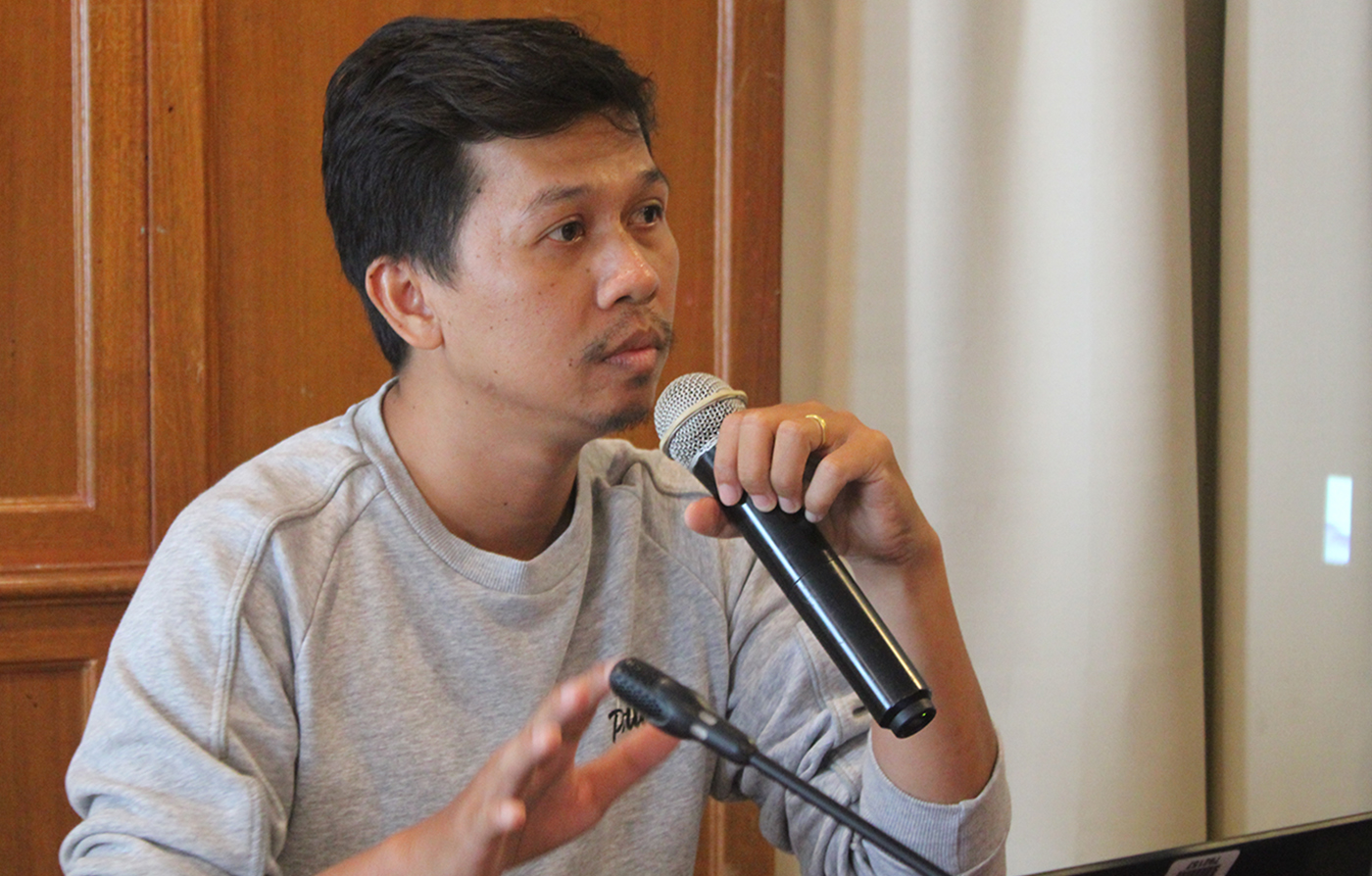
Savang Korn, a coordinator with the Committee for Free and Fair Elections in Cambodia (COMFREL), encourages stakeholders to discuss and look for solutions to provide trust news to indigenous people living in remote areas, especially information in Indigenous languages.
“Most indigenous people can understand the Khmer language, but they can’t read [Khmer],” Savang said. “I encourage relevant stakeholders, parties, and authorities to discuss to look for a good solution to provide trust news for the voters.”
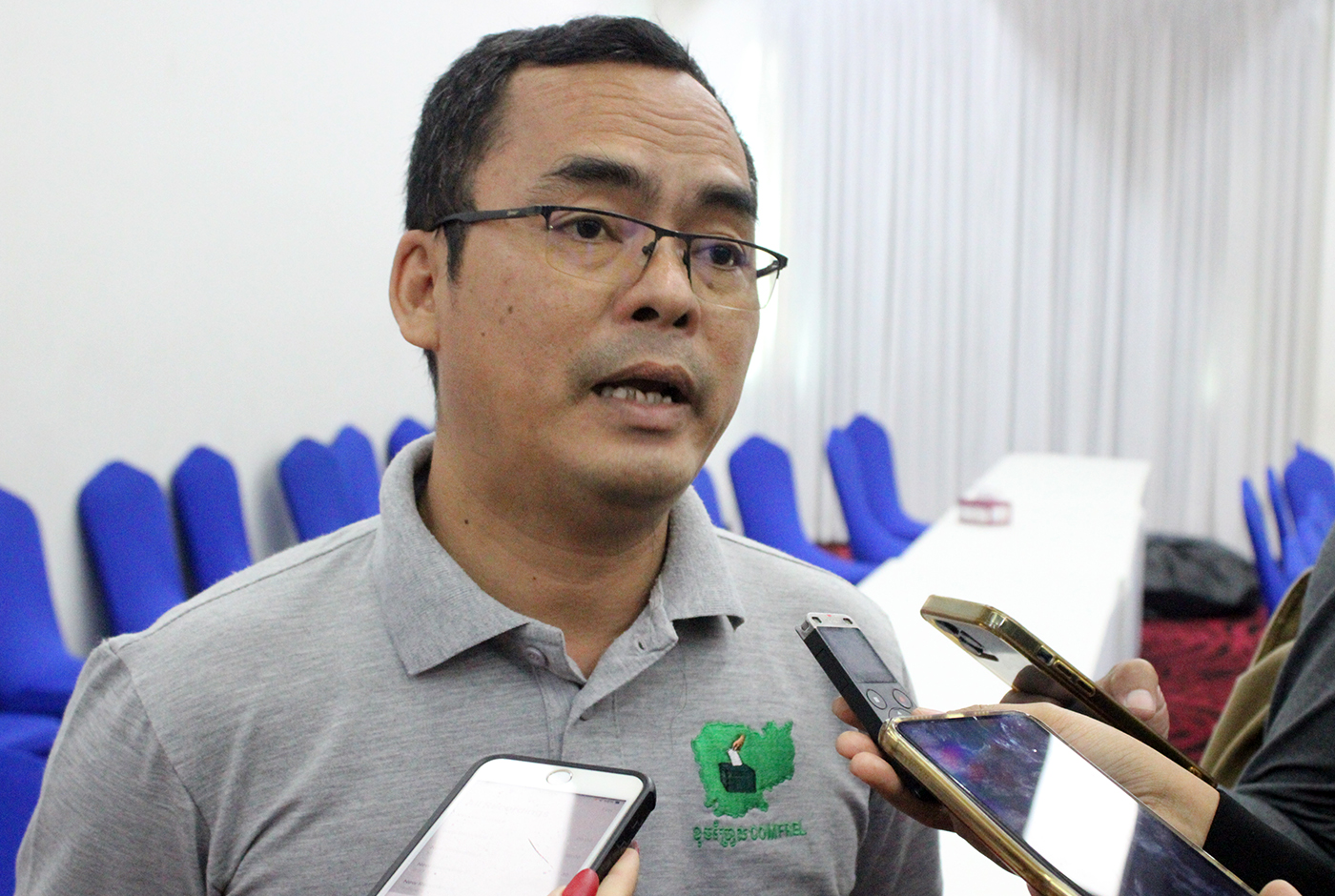
Lack of independent media
Cambodia has more than 2,200 media organizations and around 5,000 licensed journalists, according to the Ministry of Information.
But the closure of high profile independent media outlets, along with pressure and intimidation faced by journalists in recent years has left the independent media sector devastated and put voters at risk of losing access to sources of reliable information, a 2022 report by the NGO Civicus warned.
Many existing media outlets are controlled by elites connected to the ruling party and few independent media outlets remain, The Diplomat has noted.
Hard-hitting journalists are also under threat and face harassment, the Cambodia Journalists Alliance Association (CamboJA) has reported. According to a 2022 Reporters Without Borders index of global press freedom, Cambodia ranked 142 out of 180 countries.
The Ministry of Information has revoked the licenses of at least 15 media outlets, including shutting down Voice of Democracy in February after the Prime Minister and his son disputed an article published in the outlet.
CamboJA director Vy added that indigenous peoples could more effectively participate in the electoral process through strengthening access to information about digital voting.
“Relevant stakeholders should cooperate with specialized organizations to provide the knowledge of digital literacy, and digital security to the indigenous people,” he said.
In a letter published last November, local media and civil society groups urged the National Election Committee (NEC) and public authorities to guarantee the freedom of the press to report on the election process without intimidation and discrimination to show that Cambodia fulfilled the duty to respect the rights of citizens and the will of the electorate.
COMFREL’s Savang cited the importance of press freedom for news outlets to produce stories relevant to the electoral process. The government must be open and give space for the media to publish stories for voters to analyze the issues by themselves and make decisions to vote, he added.
He observed that while the NEC has previously required journalists to apply for an election press card to cover the stories at polling stations, this does not comply with the electoral legal system and a Ministry of Information press card should be sufficient under election laws.
“So, producing all news angles is very good for voters,” Savang said. “The government must open the space for journalists to report about election news and should check the legal condition to protect the journalists.”
Hurdling the digital literacy problem
Pach Sev, a 21 year old Jarai woman from Ratanakiri’s Lum Choar commune, said she realized the limited amount of information her community had access to during the commune elections last June. While her community received abundant information from the ruling CPP, she said they received little information from other parties in comparison.
“Because the information primarily comes from CPP, it is not very comprehensive,” she said. “The leader of our community goes on to tell us about the elections, persuading us to vote for the CPP and its promise to develop our community.”
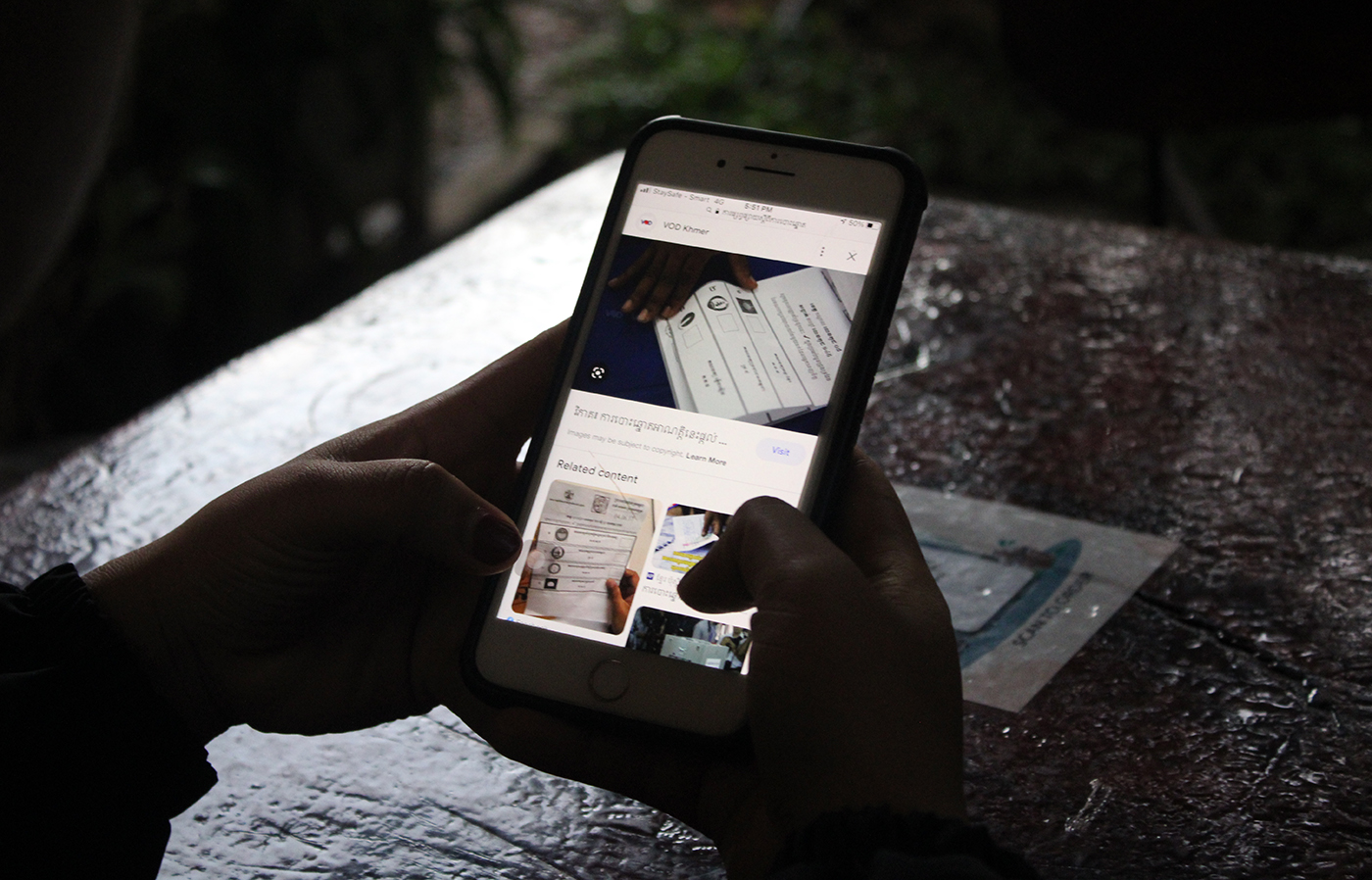
People in her community were generally indifferent to the election, she said.
“They will vote without considering the policies of the parties and they will just follow each other’s vote,” Pach said. “For example, if you are my friend you vote for the party you like, and I will vote for this party too.”
CPP spokesperson Eysan Sok acknowledged that indigenous peoples face digital literacy and internet access issues but believes his party’s development plan, moving from urban to rural areas, will improve their lives.
“This question is a challenge that we are facing because the indigenous peoples use smartphones, but this also depends on the knowledge of users,” Eysan said. “We develop like the blossom flower which means developing from the cities to the remote areas.”
For election information, he added that the CPP campaigns with the help of village chiefs as well as commune chiefs in the areas to facilitate information in indigenous languages. However, he said that the CPP is currently only able to produce information in Khmer.
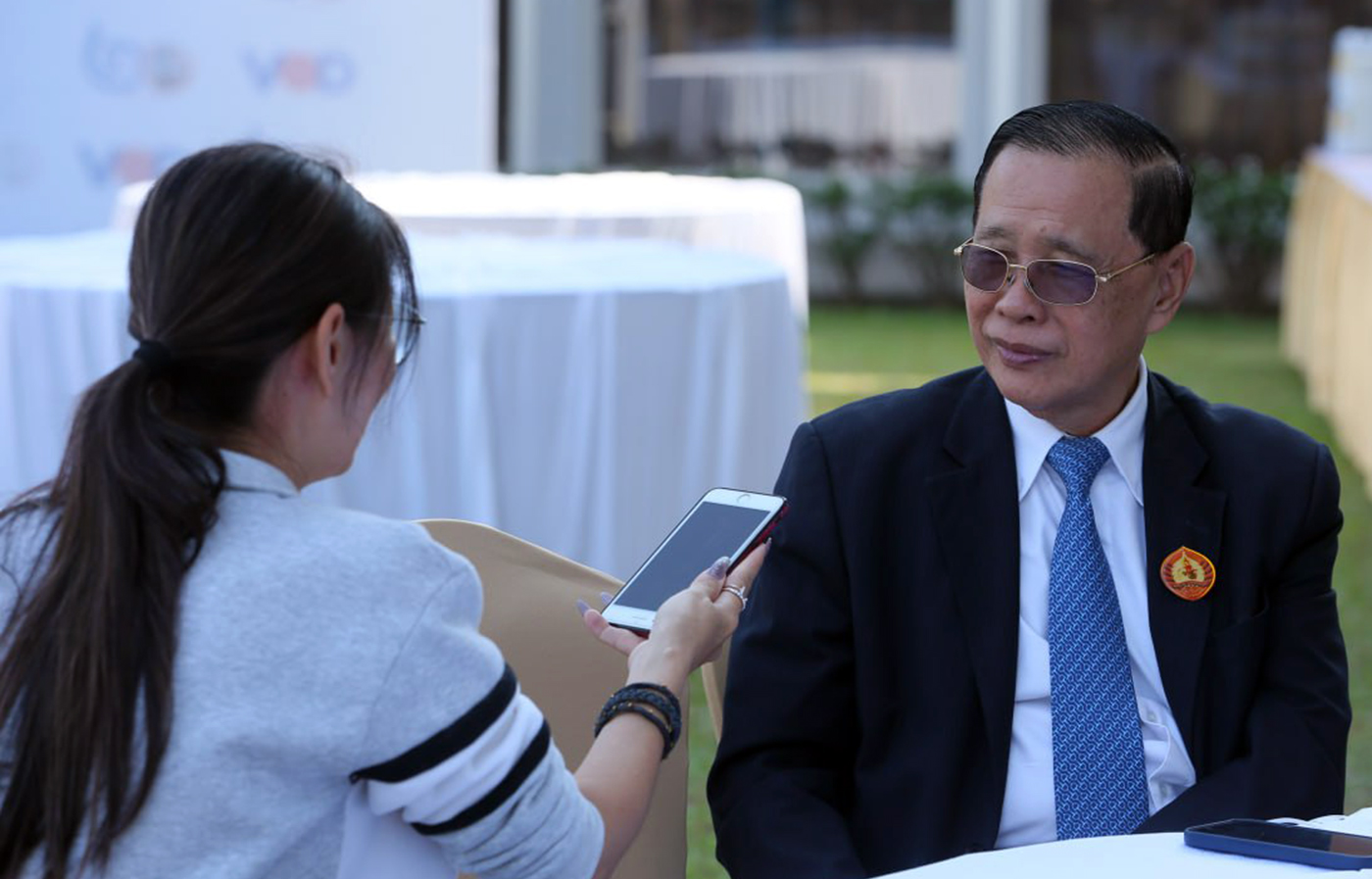
Candlelight Party spokesperson Phirith Kimsour said the party’s policies focused on improving livelihoods of indigenous people over technology because many of the older indigenous generation lack digital knowledge.
“In general, we are not so focused on information technology,” Phirith said. “Because of the limited knowledge of indigenous peoples, the most important issue that we focus on is their daily lives and especially farmers, workers, and [bringing] education to youth.”
While many indigenous peoples still have only limited access to information and the internet, indigenous youth told CamboJA they hope these challenges will be addressed and they will have transparent access to reliable information in the months leading up to the national elections.
Pach Sev said she hopes the election season campaigning will be transparent and accessible to voters, especially in indigenous communities, and avoid producing misinformation.
“The election campaigning is extensive advertising for voters,” Sev said. “The voters should understand the parties’ policies during the campaign.”
NOTE: This story is produced under the ANFREL Asian Media Fellowship on Election Reporting.


